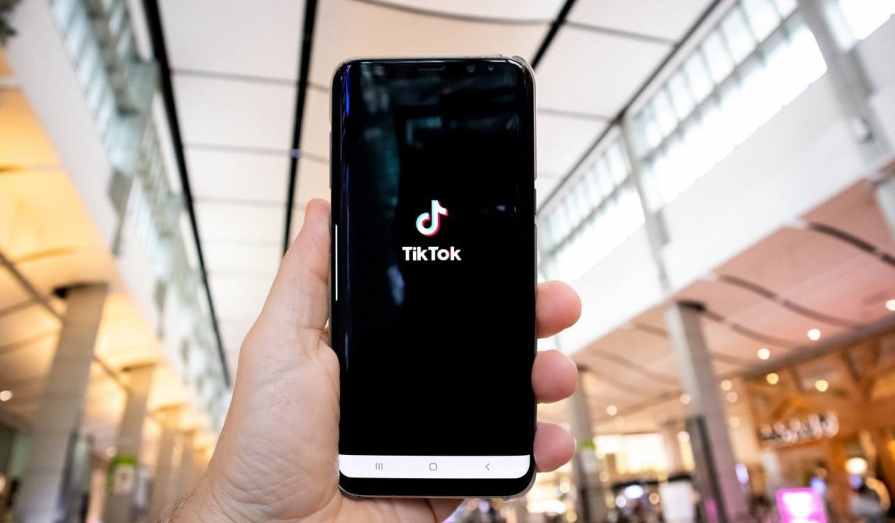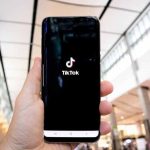Top startup news for Monday, March 20, 2023: Aembit, Amazon, Microsoft, Nuance, Runway, and TikTok

Good evening! Below are some of the top tech startup news stories for Monday, March 20, 2023.
TikTok hits 150 million U.S. monthly users, up from 100 million in 2020
Amid plans by the US government to ban the most popular teen app, TikTok announced on Monday that its short-video sharing app now has 150 million monthly active users in the United States, a 50% increase from the 100 million users it had in 2020.
The ByteDance-owned TikzTok confirmed the figure ahead of the company’s CEO Shou Zi Chew’s testimony scheduled for Thursday before the US House Energy and Commerce Committee. TikTok has been under the target of US lawmakers following the concerns and allegations the company was sending users’ data to China.
On Friday, bipartisan legislation gained support from six additional U.S. senators, which would grant President Joe Biden expanded authority to prohibit TikTok on national security grounds. Recently, TikTok revealed that the Biden administration requested its Chinese proprietors to relinquish their ownership stake in the platform, or else it could potentially encounter a ban in the United States.
Since its launch in 2016, TikTok has become a growing global phenomenon due to its ability to quickly get its users addicted to its short-form viral videos loved by millions of youths. In just a few years after its launch, TikTok now has over 1 billion users in more than 150 countries. The TikTok app has been downloaded over 210 million times in the United States alone.
Microsoft launches Dragon Ambient eXperience (DAX) Express, an OpenAI tool to make it easier for doctors to take notes
Less than a week after unveiling a new AI office “Copilot” for Microsoft 365, Microsoft Microsoft and its Nuance Communications subsidiary today announced the launch of Dragon Ambient eXperience (DAX) Express, a clinical notes application for healthcare workers that is powered by artificial intelligence.
Powered by a combination of ambient AI and OpenAI’s newest model, GPT-4, the goal of the new DAX Express is to help reduce clinicians’ administrative burdens and paperwork by automatically generating a draft of clinical notes after a patient visit.
In a statement, Diana Nole, the executive VP of Nuance’s healthcare division, told CNBC that the company wants to help physicians “get back to the joy of medicine” so they can take care of more patients.
“Our ultimate goal is to reduce this cognitive burden, to reduce the amount of time that they actually have to spend on these administrative tasks,” she said.
As we reported back in April 2021, Microsoft acquired Nuance for $16 billion to accelerate its industry cloud strategy for healthcare. The Massachusetts-based Nuance provides solutions that understand, analyze, and respond to people – amplifying human intelligence to increase productivity and security. Its revenue comes from selling tools for recognizing and transcribing speech during doctor office visits, customer service calls, and voicemails.
DAX Express complements other existing services that Nuance already has on the market.
Nole said the technology will be enabled through Nuance’s Dragon Medical One speech recognition application, which is used by more than 550,000 physicians. Dragon Medical One is a cloud-based workflow assistant that physicians can operate using their voices, allowing them to navigate clinical systems and access patient information quickly, Clinical notes generated by DAX Express will appear in the Dragon Medical One desktop.
Amazon to fire another 9,000 workers in a second round of layoffs
Today, Amazon.com said it would cut 9,000 jobs, making Amazon the latest in a series of tech companies to announce layoffs amid recession threats and global slowdown a possible recession. The latest cuts will impact workers in its cloud services, advertising and Twitch units. In a statement posted on the company’s website, CEO Andy Jassy said:
“Given the uncertain economy in which we reside, and the uncertainty that exists in the near future, we have chosen to be more streamlined in our costs and headcount.”
Jassy said that the company had added a substantial amount of staff in the past few years, but the uncertain economy has forced it to choose cost and headcount cuts.
Amazon is not alone. Tech giants like Spotify, Google’s Alphabet, and Nvidia have all taken measures to rein in spending. Other companies like Coinbase, Shopify, Netflix, and Twilio have also announced layoffs.
Last week, Facebook-parent company Meta announced it would cut 10,000 jobs, just four months after it let go of 11,000 employees, making the social giant the first Big Tech company to announce a second round of mass layoffs.
Runway, the startup behind Stable Diffusion, releases a new AI model to generate videos from text
The use of AI image generators dates back to the early 1990s when artists started to use AI algorithms to generate art, music, and visual effects. In 2021, the launch of DALL-E2 , a neural network-based image generation model developed by OpenAI, further led to the mainstream adoption of AI image generators.
Today, the precision, realism, and controllability of AI systems for image and video synthesis are rapidly improving. One of the most popular AI image generators is Stable Diffusion, a deep learning text-to-image model that now enables billions of people to create stunning art within seconds based on text descriptions.
Runway, one of the startups behind the Stable Diffusion AI image generator, announced today the release of an AI model known as Gen-2 that takes any text description – such as “turtles flying in the sky” – and generates three seconds of matching video footage.
According to its website, Gen-2 is a multi-modal AI system that can generate novel videos with text, images, or video clips.
Due to safety and business concerns, Runway has decided not to release the model widely at this time, nor will it be open-sourced like Stable Diffusion. Initially, the text-to-video model will only be accessible through a waitlist on the Runway website and via Discord.
While the use of AI to generate videos from text inputs is not a new concept, last year Meta Platforms and Google both published research papers on text-to-video AI models. However, what sets Runway apart, according to Runway’s co-founder and CEO Cristobal Valenzuela, is that its text-to-video AI model will be accessible to the general public.
Cybersecurity startup Aembit launches with $16.6M in funding to bring identity-first security to workloads
Aembit, a Maryland-based cybersecurity startup that helps DevOps and security teams manage, enforce, and audit access between federated workloads, officially launched from stealth with a $16.6 million seed funding led by Ballistic Ventures and Ten Eleven Ventures.
Aembit provides secure and uninterrupted access from your workloads to the services on which they depend, such as APIs, databases, and cloud resources. Aembit is also the first to help companies apply a zero-trust security framework to workload access (APIs, databases, cloud resources), similar to existing solutions for workforce (people) access.
Aembit’s cloud-based platform solves the challenge of secure access between workloads by offering a user-friendly solution that DevOps and Security teams can effortlessly deploy, and developers can adopt without hassle. With Aembit, teams can prioritize access management instead of secrets management. Aembit adopts innovative techniques like secretless authentication and credential providers, along with no-code integrations, to simplify secure access for developers.
The company’s pioneering approach to workload access security has earned it recognition as a Cool Vendor in the 2022 Gartner® Cool Vendors™ in Identity-First Security report1. Aembit enables companies to apply a zero-trust security framework to workload access, similar to the solutions used for workforce access. It provides seamless and secure access from workloads to critical services, such as APIs, databases, and cloud resources, to ensure organizations remain secure and protected.
Over the past decade, application architecture has undergone a radical transformation. What were once monolithic, standalone applications have evolved into distributed systems that span the globe and encompass APIs, databases, SaaS services, and partner workloads.
However, as applications have become increasingly complex and distributed, DevOps and Security teams face the significant challenge of scaling secure access, providing security teams with visibility, and enabling developers to concentrate on building essential business functionalities. Inadequate management of workload identities, access, and privileges are among the primary causes of security breaches.

